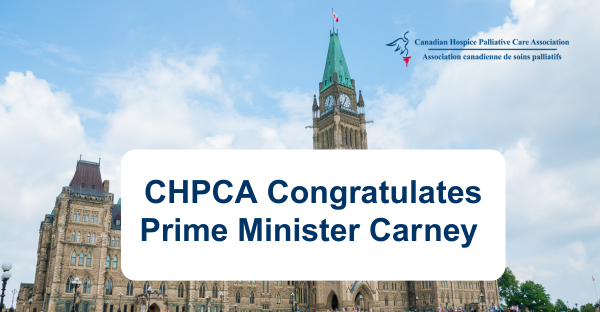CHPCA News
Below you will find CHPCA press releases, news pieces, and other articles of interest on hospice palliative care in Canada. Please contact us if you have news you would like us to share.

CHPCA Open Letter to Canada’s Federal Political Parties
The Canadian Hospice Palliative Care Association (CHPCA) urges all political parties to commit to making access to high-quality, equitable palliative care a national priority.

Abstract Submission is Now Open for the 2025 CHPCA Conference
Abstract submission is now open for the 2025 CHPCA conference.

WHPCA Board Member and CHPCA CEO Laurel Gillespie Advocates for Global Access to Palliative Care at WHO Executive Board Meeting
CHPCA proudly shares that CEO Laurel Gillespie, trustee of the Worldwide Hospice Palliative Care Alliance (WHPCA), attended the 156th session of the Executive Board of the World Health Organization (WHO).

CHPCA Announces 25 Recipients for the King Charles III Coronation Medal
CHCPA is happy to announce 25 recipients of the King Charles III Coronation Medal. As a nominating partner organization for the Coronation Medals, CHPCA is proud to recognize these champions for hospice palliative care from across Canada with this honour.

CHPCA to Present and Exhibit at the McGill International Palliative Care Congress 2024
Canadian Hospice Palliative Care Association (CHPCA) announced they will be sending four delegates to Montréal, Québec to represent CHPCA at the 24th McGill International Palliative Care Congress.

CHPCA to Attend Last Aid International Conference 2024
CHPCA is joining delegates from around the world to gather in Cologne, Germany on September 5th and 6th to discuss Last Aid – a public education course that gives the average person an overview of dying and grief.


